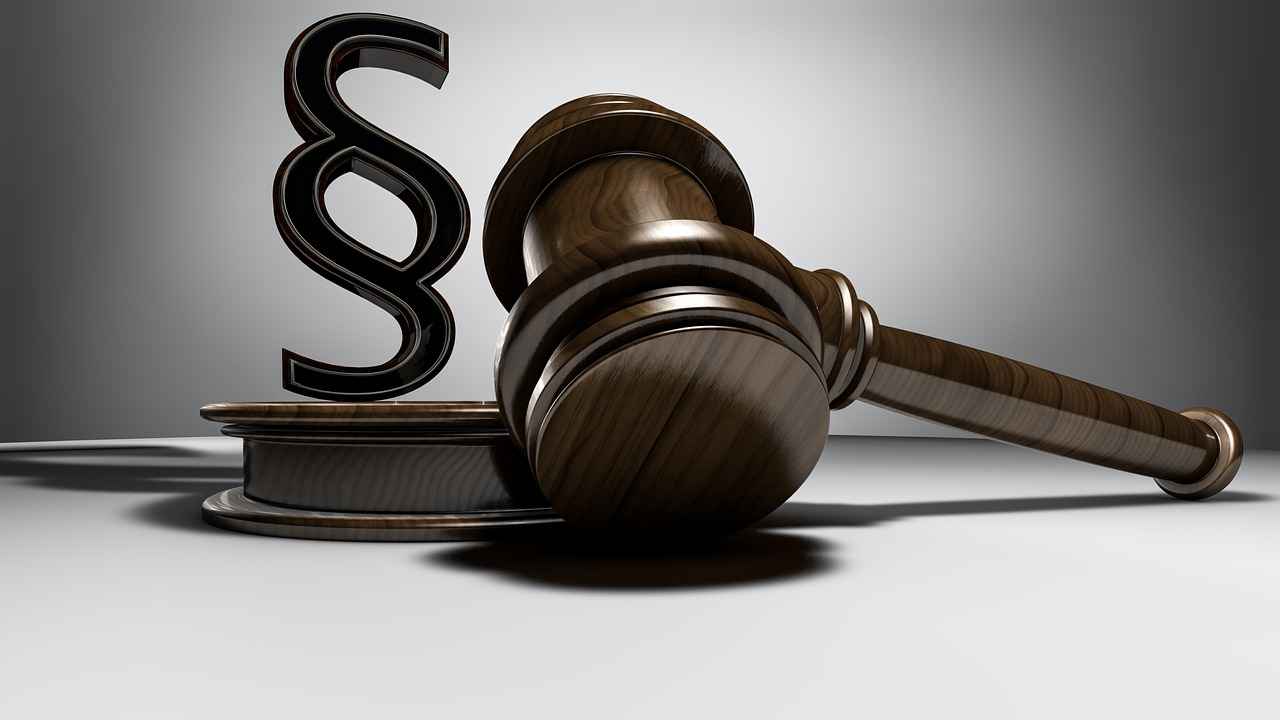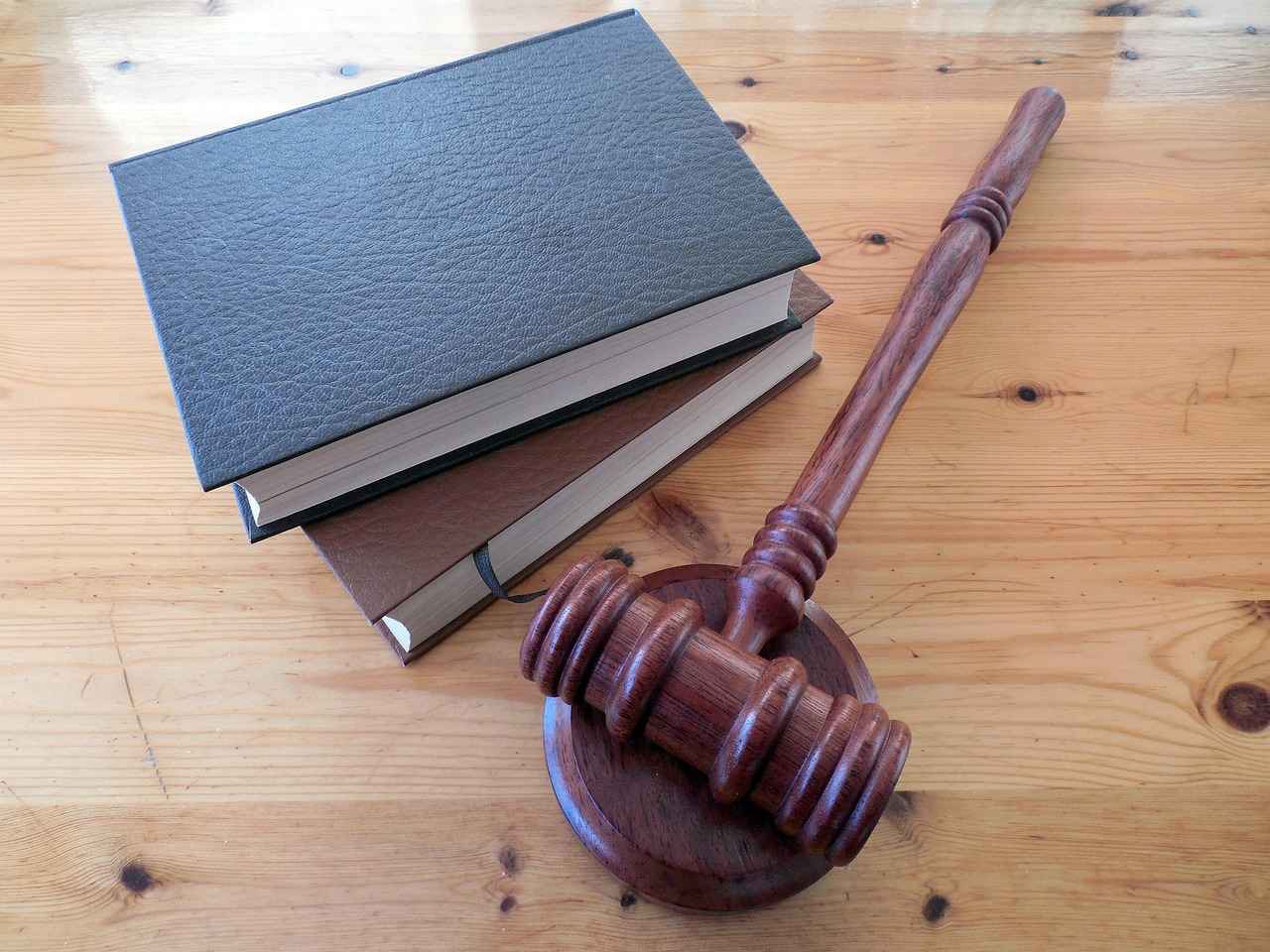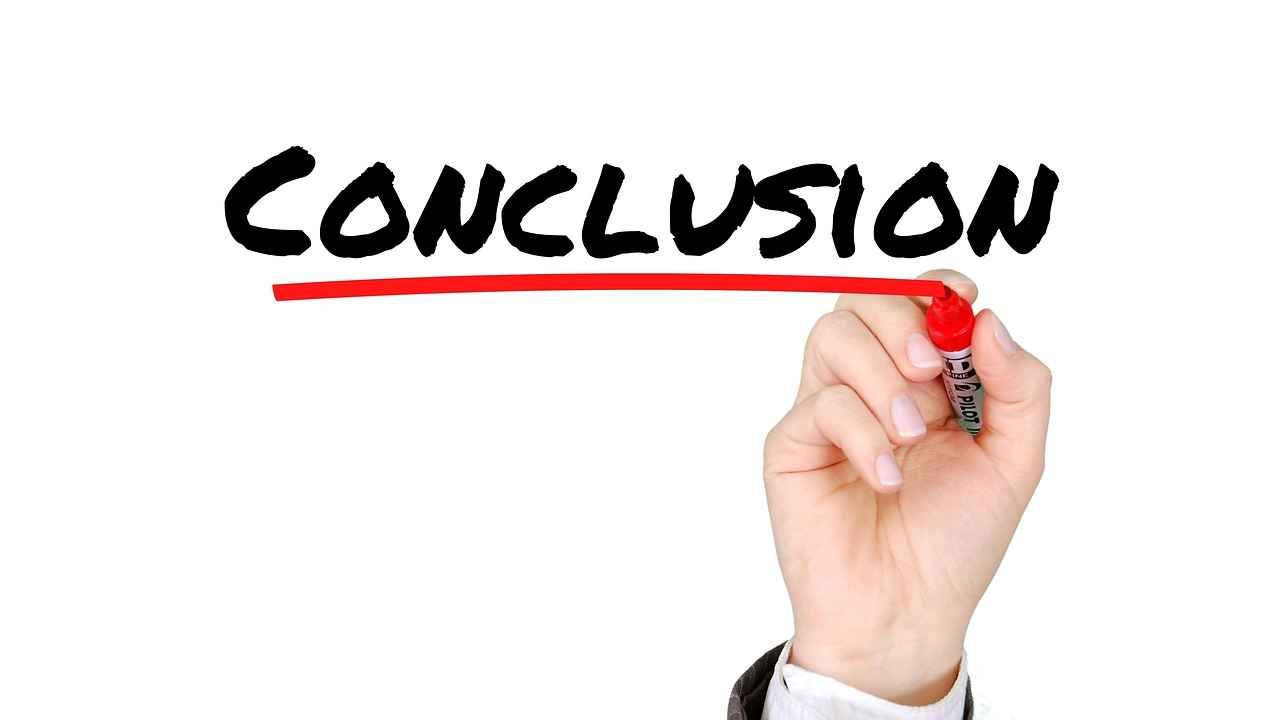This article provides comprehensive guidance on locating qualified and trustworthy legal professionals in Buffalo, New York, covering various legal case types and practical tips for choosing the right attorney.
Personal injury cases arise when individuals seek compensation for injuries sustained due to another party’s negligence. To find a skilled personal injury attorney in Buffalo, consider using online legal directories, local bar associations, and personal referrals. Look for attorneys with a proven track record in personal injury cases, as well as positive client reviews. It’s crucial to schedule consultations with potential lawyers to discuss your case and assess their communication style and expertise.
Medical malpractice involves negligence by healthcare professionals that results in patient harm. When searching for a medical malpractice attorney, verify their experience in handling similar cases and their success rates. Utilize resources like the American Association for Justice or state medical boards to find qualified lawyers. Be cautious of attorneys who promise guaranteed outcomes, as medical malpractice cases can be complex and unpredictable.
Breach of contract cases occur when one party fails to meet their contractual obligations. To find an attorney experienced in contract law, seek recommendations from business associates or utilize legal referral services. Assess their familiarity with the specific type of contract involved in your dispute, whether it be commercial, real estate, or employment-related. A good attorney will help you understand your rights and the potential remedies available.
Property disputes can involve ownership, boundaries, or landlord-tenant issues. When selecting a real estate lawyer, look for someone with extensive experience in property law and a solid understanding of local regulations. Online reviews and professional affiliations can provide insight into their reputation. Ensure that the attorney is approachable and willing to answer your questions throughout the process.
Landlord-tenant disputes often arise over lease agreements, evictions, and property conditions. An attorney with expertise in landlord-tenant law can help both parties understand their rights and responsibilities. Look for legal professionals who have a history of resolving disputes amicably, as litigation can be costly and time-consuming. Checking their credentials and past case outcomes can also be beneficial.
Defamation claims, including libel and slander, can severely impact an individual’s reputation. When searching for an attorney well-versed in media and defamation law, consider their previous case experience and familiarity with First Amendment issues. Look for lawyers who have successfully represented clients in similar cases, and be wary of those who make unrealistic promises about the outcome.
Employment disputes can range from wrongful termination to workplace discrimination. It’s essential to seek an attorney who specializes in employment law to protect your rights and interests. Research potential lawyers by examining their credentials, client testimonials, and any disciplinary actions. A knowledgeable attorney will guide you through the complexities of employment law and help you navigate the legal process effectively.
Product liability cases involve holding manufacturers accountable for defective products. Identifying lawyers with experience in consumer safety and product liability is crucial for achieving justice. Look for attorneys who have successfully handled similar cases and understand the nuances of product liability laws. Reading client reviews and consulting with past clients can provide valuable insights into their effectiveness.
Wrongful death claims arise when negligence leads to someone’s death. Choosing an attorney with a compassionate approach and expertise in wrongful death litigation can provide necessary support during difficult times. Seek lawyers who are empathetic and have a strong track record in handling wrongful death cases. It’s important to discuss their fee structure upfront, as these cases can be emotionally and financially taxing.
Class action lawsuits allow a group of people to sue for similar grievances. Finding an attorney with experience in class actions can increase the chances of a successful outcome. Look for lawyers who have led class action suits in the past and understand the complexities involved. Their ability to manage large groups of clients and navigate the legal system is crucial for success.
Assault and battery cases require skilled criminal defense attorneys to navigate the complexities of criminal law. Understanding how to find the right defense lawyer is vital for those facing charges. Research potential lawyers by checking their credentials, past case results, and client feedback. It’s essential to choose an attorney who communicates effectively and is committed to your defense.
Drug offenses encompass a range of charges, from possession to trafficking. Seeking an attorney with a strong background in drug law can significantly affect the outcome of your case. Look for lawyers who specialize in drug-related offenses and have a successful track record. They should be knowledgeable about local laws and potential defenses that may apply to your situation.
Family law cases, including divorce and child custody, require sensitivity and expertise. Knowing how to find a qualified family law attorney is essential for navigating these emotionally charged situations. Seek referrals from trusted sources and assess potential lawyers based on their experience and approach to family law. Understanding their fee structures and communication styles is also important to ensure a good fit.

Understanding Personal Injury Cases
Personal injury cases are a significant aspect of the legal landscape, representing incidents where individuals seek compensation for injuries sustained due to another party’s negligence. These cases can arise from various situations, including automobile accidents, slip and fall incidents, workplace injuries, and more. Understanding the complexities of personal injury law is essential for anyone considering a claim.
When pursuing a personal injury claim, the first step is to find a skilled personal injury attorney. This can dramatically influence the success of your case. Here are some practical tips on how to find the right legal representation:
- Research and Referrals: Start by asking friends, family, or colleagues for recommendations. Personal experiences can provide valuable insights into an attorney’s capabilities. Additionally, online platforms such as Avvo or Martindale-Hubbell offer ratings and reviews of lawyers, allowing you to gauge their reputation.
- Check Credentials: Look for attorneys who specialize in personal injury law and have a proven track record in handling similar cases. Verify their education, bar admission, and any relevant certifications or memberships in professional organizations.
- Experience Matters: An attorney’s experience can be a key factor in your case’s outcome. Inquire about their history with personal injury claims, particularly those similar to yours, and their success rates.
- Consultation: Most personal injury attorneys offer free initial consultations. Use this opportunity to discuss your case, assess their communication style, and determine if you feel comfortable working with them.
- Fee Structure: Understand the attorney’s fee structure before making a decision. Many personal injury lawyers work on a contingency fee basis, meaning they only get paid if you win your case. Make sure to clarify any additional costs that may arise during the legal process.
- Evaluate Communication: Effective communication is crucial in legal matters. Choose an attorney who is responsive, listens to your concerns, and explains the legal process in a way you can understand.
In addition to these tips, it’s essential to be aware of potential red flags. Be cautious of attorneys who guarantee outcomes, pressure you to sign contracts quickly, or lack transparency about their fees and processes. A trustworthy attorney will provide honest assessments and prioritize your best interests.
In conclusion, navigating personal injury cases can be challenging, but with the right legal representation, you can significantly improve your chances of a favorable outcome. Take the time to research and choose an attorney who not only possesses the necessary qualifications but also aligns with your personal needs and expectations.

Navigating Medical Malpractice Claims
Medical malpractice is a serious issue that arises when healthcare professionals fail to provide the standard of care expected in their field, resulting in harm to patients. This can include situations such as surgical errors, misdiagnosis, or improper treatment. Understanding the nuances of medical malpractice can be daunting, but knowing how to navigate this complex area of law is crucial for anyone seeking justice.
When it comes to finding qualified medical malpractice attorneys, there are several key factors to consider. First and foremost, look for attorneys who specialize in medical malpractice law. This specialization is vital because these cases often require a deep understanding of both medical procedures and legal standards. A lawyer with experience in this field will be better equipped to analyze your case and advocate for your rights.
One effective method for finding an attorney is to utilize online legal directories. Websites such as Avvo and FindLaw allow you to search for attorneys based on their specialties and geographic location. These platforms often include client reviews and ratings, giving you insight into the attorney’s reputation and success rate. Additionally, consider seeking recommendations from friends, family, or healthcare professionals who may have had positive experiences with malpractice attorneys.
When evaluating potential attorneys, pay attention to their credentials. Look for lawyers who have received recognition in the field, such as memberships in professional organizations like the American Association for Justice or the American Bar Association. These affiliations can indicate a commitment to staying updated on legal trends and best practices in medical malpractice.
Another important aspect to consider is the attorney’s track record. Inquire about their past cases, particularly those similar to yours, and ask about their success rates. A lawyer who has successfully handled numerous medical malpractice cases is likely to have the skills and knowledge necessary to navigate the complexities of your claim.
Additionally, it is crucial to schedule an initial consultation with potential attorneys. During this meeting, assess how comfortable you feel discussing your case and how well the attorney listens to your concerns. A good attorney will not only provide you with legal advice but will also demonstrate empathy and understanding of the emotional toll that medical malpractice can take on victims and their families.
While seeking the right attorney, be wary of red flags. For instance, if an attorney guarantees a specific outcome or pressures you into making a quick decision, it may be a sign of unprofessionalism. Effective legal representation should involve thorough discussions about your case, realistic expectations, and a clear outline of the legal process ahead.
In conclusion, navigating medical malpractice claims can be overwhelming, but with the right approach, you can find a qualified attorney who will advocate for your rights. By utilizing online resources, seeking recommendations, and carefully evaluating potential lawyers based on their experience and credentials, you can significantly improve your chances of a successful outcome in your case.

Addressing Breach of Contract Issues
In the realm of legal disputes, breach of contract cases are among the most common. These situations arise when one party fails to meet their obligations as outlined in a contract, leading to potential financial damages for the other party. Understanding the nuances of contract law is essential, as the implications can be significant.
When addressing breach of contract issues, it is crucial to find an attorney who specializes in contract law. An experienced lawyer can help you navigate the complexities of your case, ensuring that your rights are protected and that you have the best chance of a favorable outcome. Here are some important factors to consider when seeking legal representation.
- Expertise in Contract Law: Look for attorneys who have a proven track record in handling breach of contract cases. They should be well-versed in the specific laws and regulations that govern contracts in your state.
- Experience with Similar Cases: An attorney with experience in cases similar to yours will understand the unique challenges and strategies necessary for your situation. Ask about their past successes in breach of contract claims.
- Reputation and Reviews: Research potential attorneys online to read reviews from former clients. Websites like Avvo and Martindale-Hubbell can provide insights into an attorney’s reputation and professional conduct.
- Communication Skills: Effective communication is key in any attorney-client relationship. Ensure that the lawyer you choose is responsive and can explain complex legal concepts in a way that you can understand.
- Fee Structure: Understand how the attorney charges for their services. Some may work on a contingency basis, while others might charge hourly rates. Be sure to discuss fees upfront to avoid surprises later.
Additionally, identifying red flags during your search can save you from potential pitfalls. Avoid attorneys who:
- Promise Guaranteed Outcomes: No attorney can guarantee a specific result, as many factors influence the outcome of a case.
- Pressure You into Signing: A reputable lawyer will give you time to consider your options and will not rush you into making a decision.
- Have Poor Communication: If an attorney is difficult to reach or does not respond to your inquiries, it may indicate a lack of commitment to your case.
In summary, finding the right attorney for breach of contract issues requires careful consideration of their expertise, experience, and reputation. By doing thorough research and asking the right questions, you can secure legal representation that will effectively advocate for your interests. This is especially important in bustling metropolitan areas where competition among legal professionals is high, such as New York City, Los Angeles, and Chicago. Ensuring that you have a knowledgeable and trustworthy attorney can make all the difference in the outcome of your case.

Resolving Property Disputes
Property disputes can arise from various issues, including ownership, boundaries, and landlord-tenant conflicts. These disputes can be complex and emotionally charged, making it essential to have a knowledgeable attorney on your side. When facing a property dispute, the stakes can be high, whether it involves your home, an investment property, or a commercial space. Therefore, choosing a lawyer with expertise in real estate law is crucial for effectively navigating these matters.
One common type of property dispute involves ownership issues, where multiple parties claim rights to a property. This could stem from unclear titles, inheritance disputes, or disagreements over property sales. An experienced real estate attorney can help clarify ownership rights and guide you through the legal processes necessary to resolve these conflicts.
Boundary disputes are another frequent issue, often arising from disagreements over property lines. These disputes can escalate quickly, especially if one party believes their neighbor is encroaching on their land. A skilled attorney can assist in gathering evidence, such as surveys and deeds, to establish clear boundaries and advocate for your rights.
Landlord-tenant disputes are also prevalent, often involving issues such as lease agreements, evictions, and property conditions. Landlords and tenants may find themselves at odds over unpaid rent, maintenance responsibilities, or the terms of a lease. In these situations, having a lawyer who understands both sides of the law can help facilitate communication and lead to a resolution that satisfies both parties.
When searching for a real estate attorney, consider the following practical tips:
- Look for specialization: Ensure the attorney specializes in real estate law, as this expertise will be invaluable in navigating your specific dispute.
- Check credentials: Verify their educational background, bar association membership, and any additional certifications in real estate or property law.
- Read reviews: Online reviews and testimonials can provide insight into an attorney’s reputation and effectiveness in handling property disputes.
- Schedule consultations: Meeting with potential attorneys can help you gauge their communication style and approach to your case.
- Ask about fees: Understanding the attorney’s fee structure upfront can prevent any surprises later on. Some may charge hourly rates, while others may work on a flat fee basis.
It’s also essential to be aware of red flags when hiring a lawyer. Avoid attorneys who make unrealistic promises about the outcome of your case or who seem more interested in their fees than in your situation. A reputable attorney will provide a realistic assessment of your case and outline the potential challenges you may face.
In conclusion, resolving property disputes requires careful consideration and the right legal support. By choosing a qualified attorney with expertise in real estate law, you can navigate the complexities of ownership, boundaries, and landlord-tenant issues more effectively. Remember to conduct thorough research, seek recommendations, and trust your instincts when selecting the right legal professional to represent your interests.

Landlord-Tenant Disputes Explained
Landlord-tenant disputes are a common occurrence in the realm of real estate law, often leading to significant legal challenges for both parties involved. These disputes can arise from various issues, including lease agreements, evictions, and property conditions. Understanding the nuances of these disputes is essential for both landlords and tenants to navigate their rights and responsibilities effectively.
One of the primary sources of conflict is the lease agreement, which outlines the terms and conditions of the rental arrangement. Disagreements may occur over issues such as the length of the lease, rent payments, maintenance responsibilities, or rules regarding pets and guests. It is crucial for both parties to thoroughly read and understand the lease before signing, as this document serves as the legal foundation for the rental relationship.
Another frequent point of contention is eviction. Landlords may seek to evict tenants for non-payment of rent, lease violations, or other reasons. However, eviction processes are governed by specific laws that vary by state and locality. Tenants have rights that protect them from unlawful eviction practices. For instance, landlords must provide proper notice and follow legal procedures, which often include filing a formal eviction lawsuit. Tenants facing eviction should seek legal counsel to ensure their rights are upheld and to explore potential defenses against the eviction.
Property conditions also play a significant role in landlord-tenant disputes. Tenants may argue that their living conditions are unsatisfactory due to issues such as lack of heat, plumbing problems, or pest infestations. Landlords, on the other hand, may contend that tenants are responsible for damages or neglecting their duties as outlined in the lease. In such cases, it is vital to document all communications and conditions thoroughly, as this evidence can be crucial in legal proceedings.
To effectively resolve landlord-tenant disputes, hiring a knowledgeable attorney is highly recommended. An experienced lawyer can provide valuable guidance on the legal rights of both parties and help facilitate communication to reach a resolution. When searching for an attorney, consider the following:
- Experience: Look for attorneys who specialize in landlord-tenant law and have a proven track record of handling similar cases.
- Reputation: Research online reviews and seek recommendations from trusted sources to find reputable legal professionals.
- Consultation: Many attorneys offer free initial consultations. Use this opportunity to discuss your case and gauge the attorney’s expertise and approach.
- Fees: Understand the attorney’s fee structure upfront. Some may charge hourly rates, while others may work on a contingency basis.
In conclusion, navigating landlord-tenant disputes requires a clear understanding of legal rights and responsibilities. By hiring a qualified attorney, both landlords and tenants can ensure that their interests are protected and that disputes are resolved fairly and efficiently.

Understanding Defamation Lawsuits
Defamation lawsuits arise when an individual’s reputation is harmed by false statements. This legal concept is divided into two categories: libel, which pertains to written statements, and slander, which involves spoken words. The implications of defamation can be severe, affecting personal relationships, career prospects, and overall public perception. Therefore, it is essential to understand the intricacies of defamation law, especially if you find yourself as a victim or accused party.
When pursuing a defamation claim, the burden of proof lies with the plaintiff. They must demonstrate that the statement made was false, damaging, and made with a certain level of fault—either negligence or actual malice, depending on the status of the plaintiff (public figure vs. private individual). This complexity underscores the necessity of having an attorney who specializes in media and defamation law.
Finding a qualified attorney in this field can be challenging, particularly in bustling metropolitan areas like New York City or Los Angeles. Here are several practical steps to help you locate the right legal professional:
- Research Online: Use legal directories such as Avvo, FindLaw, or Martindale-Hubbell to identify attorneys who specialize in defamation cases. These platforms provide ratings, reviews, and details about their practice areas.
- Check Credentials: Look for attorneys with a strong background in defamation law, including relevant case experience, publications, or memberships in legal organizations such as the Media Law Resource Center.
- Consult Local Bar Associations: Local bar associations often have referral services that can connect you with reputable attorneys. They can also provide insights into an attorney’s standing in the legal community.
- Seek Referrals: If you know someone who has dealt with a similar issue, ask for recommendations. Personal referrals can often lead to trustworthy legal representation.
- Interview Potential Attorneys: Schedule consultations with potential attorneys to discuss your case. Pay attention to their communication style, knowledge of the law, and whether they make you feel comfortable.
While searching for a defamation attorney, be aware of red flags such as:
- Lack of Experience: Avoid attorneys who do not have a clear track record in handling defamation cases.
- Unrealistic Promises: Be cautious of lawyers who guarantee specific outcomes, as no attorney can predict the results of a legal battle.
- Poor Communication: Choose an attorney who is responsive and communicates clearly. If they are hard to reach or unclear in their explanations, consider looking elsewhere.
In conclusion, navigating the complexities of defamation lawsuits requires a thorough understanding of the law and a skilled attorney who can advocate for your rights. By following these guidelines, you can find a qualified legal professional who will help you effectively pursue or defend against defamation claims.

Employment Disputes and Your Rights
Employment disputes are a significant area of concern for many individuals in the workforce. They can encompass a variety of issues, including wrongful termination, workplace discrimination, harassment, and retaliation. Understanding your rights in these situations is crucial for protecting yourself and ensuring fair treatment in the workplace.
When faced with an employment dispute, it is essential to seek out an attorney who specializes in employment law. These legal professionals have the expertise to navigate the complex landscape of labor regulations and can provide invaluable guidance throughout the process. Here are some key points to consider when dealing with employment disputes:
- Types of Employment Disputes: Employment disputes can arise from various situations, including but not limited to:
- Wrongful Termination: When an employee is fired for illegal reasons, such as discrimination or retaliation.
- Discrimination: Treating an employee unfavorably due to race, gender, age, or disability.
- Harassment: Unwanted conduct that creates a hostile work environment.
- Wage and Hour Disputes: Issues related to unpaid wages, overtime, or misclassification of employees.
- Importance of Legal Representation: An attorney specializing in employment law can help you understand your rights, evaluate your case, and determine the best course of action. They can also represent you in negotiations or litigation, ensuring that your voice is heard.
- Finding the Right Attorney: To find a qualified employment lawyer, consider the following:
- Look for attorneys with a strong background in employment law, evidenced by their education, experience, and past case successes.
- Seek referrals from trusted sources, such as friends, family, or professional networks.
- Utilize online platforms like Avvo, Martindale-Hubbell, or FindLaw to read reviews and compare attorneys.
- Check for any disciplinary actions or complaints against the attorney through your state’s bar association.
- Red Flags to Avoid: Be cautious of attorneys who make unrealistic promises, pressure you into signing contracts quickly, or lack transparency about their fees and services.
In conclusion, navigating employment disputes can be daunting, but with the right legal representation, you can protect your rights and interests effectively. Seeking an attorney who specializes in employment law is essential to ensure that you receive the guidance and support needed to address your case properly.

Product Liability Cases
are a significant area of law that holds manufacturers, distributors, and retailers accountable for injuries caused by defective products. These cases arise when a product is found to be unsafe or does not perform as expected, leading to consumer harm. Understanding the intricacies of product liability is essential for anyone seeking justice in such matters.
In the realm of product liability, there are typically three main types of defects that can lead to a case:
- Design defects: These occur when the product is inherently dangerous due to its design.
- Manufacturing defects: These happen during the production process, resulting in a safe design being compromised.
- Marketing defects: These involve improper instructions or failure to warn consumers about potential risks associated with the product.
To navigate the complexities of product liability cases, it is crucial to find a lawyer with experience in consumer safety and product liability law. Here are some practical tips to identify qualified attorneys:
- Research credentials: Look for attorneys who have specialized training and certifications in product liability law. Memberships in relevant organizations, such as the American Association for Justice, can indicate a commitment to this area of practice.
- Experience matters: Seek lawyers who have a proven track record of handling product liability cases successfully. Ask about their past cases, outcomes, and specific experience with the type of product involved in your case.
- Client reviews: Online reviews and testimonials can provide insight into an attorney’s reputation and the experiences of previous clients. Look for patterns in feedback regarding communication, professionalism, and case outcomes.
- Consultation availability: Many attorneys offer free initial consultations. Use this opportunity to discuss your case, gauge their knowledge, and determine if you feel comfortable working with them.
When evaluating potential lawyers, be mindful of red flags that might indicate a lack of suitability:
- High-pressure tactics: Be wary of attorneys who push you to sign contracts or make quick decisions without fully understanding your options.
- Lack of transparency: If an attorney is unwilling to discuss fees or provide clear information about their approach, this could be a warning sign.
- Poor communication: An attorney should be responsive and willing to answer your questions. If they are difficult to reach or do not communicate clearly, consider looking elsewhere.
In major metropolitan areas like New York City, Los Angeles, and Chicago, there are numerous legal professionals specializing in product liability cases. Utilize online legal directories, such as Avvo or FindLaw, to search for attorneys in your area. Additionally, local bar associations often provide referral services that can help connect you with qualified lawyers.
In conclusion, product liability cases are complex and require the expertise of knowledgeable attorneys who understand consumer rights and safety regulations. By conducting thorough research, asking the right questions, and being vigilant about potential red flags, individuals can find the most qualified legal representation to pursue justice in their product liability claims.

Understanding Wrongful Death Claims
Understanding wrongful death claims is crucial for anyone navigating the complexities of legal recourse following the tragic loss of a loved one due to another’s negligence. These claims arise when an individual dies as a result of someone else’s careless actions or failure to act. Such cases can include a variety of circumstances, from automobile accidents to medical malpractice, and even workplace incidents. The emotional and financial toll of losing a loved one can be overwhelming, making it essential to seek not only justice but also support during this challenging time.
When pursuing a wrongful death claim, it is vital to choose an attorney who possesses both compassion and a deep understanding of wrongful death litigation. A skilled lawyer can guide the bereaved family through the legal process, helping them to understand their rights and the potential compensation they may be entitled to. This compensation can cover a range of damages, including medical expenses, funeral costs, lost income, and emotional suffering.
To find the best wrongful death attorney, consider the following steps:
- Research Credentials: Look for attorneys with a proven track record in wrongful death cases. Check their education, years of experience, and any specialized certifications.
- Read Reviews: Online platforms such as Avvo, Martindale-Hubbell, and Google Reviews can provide insights into an attorney’s reputation. Look for testimonials from previous clients who have faced similar situations.
- Schedule Consultations: Many attorneys offer free initial consultations. Use this opportunity to discuss your case, gauge their empathy, and assess their communication style.
- Evaluate Communication: A good attorney should be able to explain complex legal concepts in a way that is easy to understand. They should be responsive and willing to answer your questions.
- Consider Fees: Understand the attorney’s fee structure. Many wrongful death attorneys work on a contingency basis, meaning they only get paid if you win your case. Ensure you are clear about any costs involved.
Additionally, be aware of red flags when selecting an attorney. These can include:
- High Pressure Tactics: If an attorney rushes you into making decisions, it may indicate a lack of integrity.
- Lack of Experience: Avoid attorneys who do not specialize in wrongful death cases, as they may not have the necessary expertise.
- Poor Communication: If an attorney is unresponsive or fails to keep you updated, it can lead to frustration and mistrust.
In summary, navigating a wrongful death claim requires not only legal expertise but also emotional support. By taking the time to research and select a qualified attorney, families can ensure they have the best chance at achieving justice for their loved one while also receiving the compassionate guidance they need during such a difficult time.

Class Action Lawsuits Explained
Class action lawsuits serve as a powerful legal tool that enables a group of individuals to collectively seek justice for similar grievances against a defendant, usually a corporation or organization. This type of litigation is particularly beneficial when the claims of each individual may be too small to warrant separate lawsuits, thus promoting efficiency and reducing the burden on the judicial system. Understanding the intricacies of class action lawsuits is essential for anyone considering this route.
When pursuing a class action lawsuit, it is crucial to find an attorney with extensive experience in this area of law. Experienced attorneys can navigate the complexities of class certification, which is a critical step in the process. Certification determines whether the case can proceed as a class action, and it requires demonstrating that the claims of the group are sufficiently similar. This is where the expertise of a qualified attorney is invaluable.
In your search for a class action attorney, consider the following practical tips:
- Research their track record: Look for attorneys who have successfully handled class action cases in the past. Check their win-loss record and read client testimonials to gauge their effectiveness.
- Assess their specialization: Not all attorneys have the same level of expertise in class actions. Seek out lawyers who specialize in this area and have a deep understanding of the relevant laws and precedents.
- Evaluate their resources: Class action lawsuits can be resource-intensive. Ensure that the attorney or law firm has the necessary financial and personnel resources to handle your case effectively.
- Check for affiliations: Membership in professional organizations, such as the American Association for Justice, can indicate a commitment to staying updated on legal developments in class action litigation.
- Consultations: Many attorneys offer free initial consultations. Use this opportunity to discuss your case, ask questions, and assess their communication style and responsiveness.
Additionally, be aware of potential red flags when selecting a class action attorney:
- High-pressure tactics: If an attorney pushes you to sign a contract immediately or seems overly aggressive, consider this a warning sign.
- Lack of transparency: Be cautious of attorneys who are not forthcoming about their fees, processes, or the likelihood of success.
- Inexperience: Avoid attorneys who lack experience in class action cases, as this can significantly affect the outcome of your lawsuit.
Ultimately, a successful class action lawsuit hinges on the collective strength of the group and the expertise of the legal representation. By taking the time to find a qualified attorney, you can enhance your chances of achieving a favorable outcome. The journey through a class action lawsuit can be daunting, but with the right legal partner, it can also be a path to justice for many.

Criminal Defense: Assault and Battery
When facing serious charges such as assault and battery, having a competent and experienced criminal defense attorney is crucial. These cases can involve complex legal nuances, and understanding how to find the right defense lawyer can significantly impact the outcome of your case. Here’s a comprehensive guide to help you navigate this challenging situation.
Understanding Assault and Battery Charges
Assault and battery are often used interchangeably, but they refer to different actions in the eyes of the law. Assault typically involves threatening behavior that creates a fear of imminent harm, while battery refers to the actual physical act of causing harm to another person. Both offenses can lead to serious legal consequences, including fines and imprisonment. Therefore, it is essential to have a skilled attorney who understands the intricacies of criminal law.
Finding the Right Defense Attorney
When searching for a criminal defense attorney, particularly for assault and battery cases, consider the following steps:
- Research Local Attorneys: Start by looking for attorneys who specialize in criminal defense within your area. Websites such as Avvo and FindLaw can provide listings and reviews of local lawyers.
- Check Credentials: Look for attorneys with relevant experience in handling assault and battery cases. Verify their educational background, years of practice, and any professional affiliations, such as membership in the National Association of Criminal Defense Lawyers.
- Read Reviews: Online reviews and testimonials can provide insights into an attorney’s reputation and success rate. Pay attention to feedback regarding their communication skills and case outcomes.
- Schedule Consultations: Many attorneys offer free initial consultations. Use this opportunity to discuss your case, assess their approach, and determine if you feel comfortable working with them.
Questions to Ask During Consultations
During your initial meetings with potential attorneys, it’s important to ask specific questions to gauge their suitability:
- What is your experience with assault and battery cases? Understanding their track record in similar cases can help you make an informed decision.
- What is your strategy for my case? A good attorney should have a clear plan tailored to your specific circumstances.
- What are the potential outcomes of my case? They should be able to provide realistic expectations based on their experience.
- What are your fees and payment structure? Understanding the costs involved upfront can prevent any surprises later on.
Red Flags to Avoid
While searching for an attorney, be aware of potential red flags that may indicate a lack of professionalism or expertise:
- Unclear Communication: If an attorney struggles to explain legal concepts or seems evasive about their experience, it may be a warning sign.
- Lack of Specialization: Avoid attorneys who do not specialize in criminal defense, as they may not be familiar with the nuances of assault and battery laws.
- High Pressure Tactics: If you feel rushed or pressured to make decisions during consultations, it’s best to seek representation elsewhere.
Importance of Local Knowledge
Choosing an attorney who is familiar with the local court system can offer significant advantages. They will understand the specific judges, prosecutors, and legal nuances that can influence your case. This local knowledge can be a critical factor in developing an effective defense strategy.
Conclusion
Finding the right criminal defense attorney for assault and battery charges is a vital step in protecting your rights and future. By conducting thorough research, asking the right questions, and being aware of red flags, you can ensure that you are making an informed choice. Remember, a skilled attorney can make a significant difference in the outcome of your case.

Understanding Drug Offenses
Drug offenses cover a wide spectrum of illegal activities related to controlled substances, including possession, distribution, trafficking, and manufacturing. Each category presents unique challenges and legal implications, making it essential to understand the nuances of drug law. In the United States, laws governing drug offenses vary significantly from state to state, and the consequences can be severe, often resulting in hefty fines, imprisonment, and a permanent criminal record.
When facing drug charges, the importance of hiring an attorney with a robust background in drug law cannot be overstated. An experienced attorney will not only understand the intricacies of drug statutes but also be familiar with local court systems and prosecutorial practices. This knowledge can prove invaluable in negotiating plea deals, reducing charges, or even securing dismissals in certain cases.
To find the best legal representation for drug offenses, consider the following strategies:
- Research Specialization: Look for attorneys who specialize in criminal defense with a focus on drug law. These professionals will have the necessary experience and knowledge to handle your case effectively.
- Check Credentials: Review potential attorneys’ qualifications, including their education, years of experience, and any accolades or recognitions they have received in the field of drug law.
- Read Reviews and Testimonials: Online platforms such as Avvo, Martindale-Hubbell, and Google Reviews can provide insights into other clients’ experiences with specific attorneys.
- Consultation: Many attorneys offer free initial consultations. Use this opportunity to discuss your case and evaluate the attorney’s communication style, approach, and overall fit for your needs.
- Ask About Outcomes: Inquire about the attorney’s past case results, specifically regarding drug offenses. This will give you a sense of their track record and effectiveness in similar situations.
- Trust Your Instincts: The attorney-client relationship is crucial. Choose someone you feel comfortable with and who demonstrates genuine interest in your case.
It is also important to be aware of potential red flags when selecting an attorney. Avoid lawyers who make unrealistic promises regarding case outcomes, charge exorbitant fees without justification, or seem disinterested in your case during initial consultations. A competent attorney should be transparent about their fee structure, the potential challenges of your case, and the legal process as a whole.
In summary, navigating the complexities of drug offenses requires a knowledgeable and experienced attorney. By conducting thorough research and following the outlined strategies, individuals can find qualified legal representation that can significantly impact the outcome of their cases. Understanding your rights and the legal landscape surrounding drug offenses is the first step toward achieving a favorable resolution.

Finding Legal Help for Family Law Matters
When it comes to family law matters, the stakes can be incredibly high, often involving emotional and financial repercussions. Cases such as divorce, child custody, and child support require not only legal expertise but also a deep understanding of the emotional dynamics at play. Navigating these turbulent waters necessitates a qualified family law attorney who can offer both legal guidance and emotional support. Here’s how to find the right legal representation for your family law needs.
Understanding Family Law Cases
Family law encompasses a variety of legal issues, including but not limited to:
- Divorce
- Child custody and visitation
- Child support
- Spousal support (alimony)
- Adoption
- Paternity
- Guardianship
Each of these areas requires specialized knowledge of family law, as well as an understanding of local laws and procedures. Therefore, finding an attorney with specific experience in family law is crucial.
How to Find a Qualified Family Law Attorney
Here are some practical steps you can take to find the right family law attorney:
- Research Local Attorneys: Start by searching online for family law attorneys in your area. Websites like Avvo and FindLaw provide directories of lawyers along with client reviews and ratings, which can help you gauge their reputation.
- Check Credentials: Look for attorneys who are members of the American Academy of Matrimonial Lawyers or state bar associations specializing in family law. These credentials indicate a commitment to excellence in the field.
- Schedule Consultations: Many attorneys offer free initial consultations. Use this opportunity to ask about their experience with cases similar to yours, their approach to resolving disputes, and their fee structure.
- Evaluate Communication: Choose an attorney who communicates clearly and empathetically. Family law cases are sensitive, and you need a lawyer who listens to your concerns and keeps you informed throughout the process.
- Assess Compatibility: Family law matters can take time to resolve, so it’s essential to work with someone you feel comfortable with. Trust your instincts when assessing whether an attorney is the right fit for you.
Red Flags to Avoid
While searching for a family law attorney, be aware of potential red flags that may indicate a less-than-reliable professional:
- Overpromising outcomes or guarantees of success
- Lack of clear communication or responsiveness
- Negative reviews or complaints filed with the state bar
- Pressure to sign contracts or make decisions quickly
Conclusion
Finding the right family law attorney can significantly impact the outcome of your case. By conducting thorough research, checking credentials, and assessing compatibility, you can navigate the complexities of family law with confidence and peace of mind.
Frequently Asked Questions
- How do I choose the right lawyer for my case?
Choosing the right lawyer can feel overwhelming, but start by identifying your specific legal needs. Look for attorneys who specialize in your area of concern, whether it’s personal injury, family law, or criminal defense. Don’t hesitate to schedule consultations to gauge their experience and approach.
- What should I ask during a consultation with a lawyer?
During the consultation, ask about their experience with cases similar to yours, their fee structure, and their approach to communication. It’s also wise to inquire about the expected timeline for your case and any potential challenges you might face.
- How much will legal representation cost?
Legal fees can vary widely based on the type of case and the attorney’s experience. Some lawyers charge hourly rates, while others may work on a contingency fee basis, especially in personal injury cases. Always clarify the costs upfront to avoid surprises later.
- What happens if I can’t afford a lawyer?
If you’re struggling to afford legal representation, consider seeking out legal aid services or pro bono programs in your area. Many attorneys also offer payment plans or sliding scale fees based on your income.
- Can I represent myself in court?
While it’s possible to represent yourself, it’s often not advisable, especially in complex cases. The legal system can be intricate, and having a knowledgeable attorney can significantly improve your chances of a favorable outcome.














